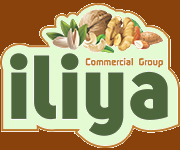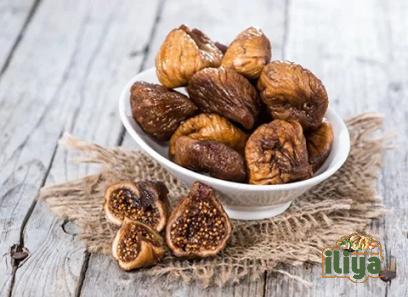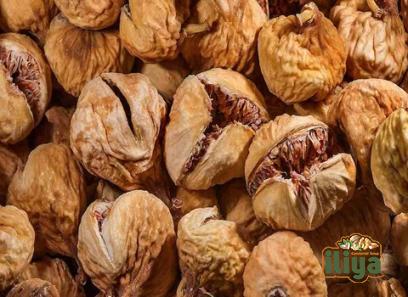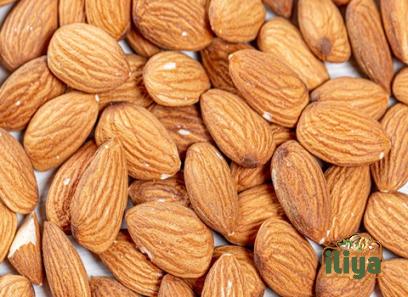Raw hazelnut kernels are the edible seeds of the hazelnut tree, scientifically known as Corylus avellana. Hazelnuts are highly valued for their rich flavor and are widely used in various culinary applications, such as baking, confectionery, and snacking. They are also packed with essential nutrients and offer several health benefits.
Raw hazelnut kernels are typically round or oval in shape, with a brown outer shell that needs to be removed before consumption. Once the outer shell is cracked, the edible kernel inside can be enjoyed in its natural raw form or used in various cooking and baking recipes.
Hazelnuts are known for their distinctive taste, characterized by a subtle sweetness and a rich, nutty flavor. Many people enjoy snacking on them due to their satisfying crunch and unique flavor profile. They can also be ground into a fine powder to create hazelnut flour, which is often used as a gluten-free alternative to regular flour in baking.
Apart from their pleasant taste, raw hazelnut kernels also offer numerous health benefits. They are an excellent source of healthy fats, including monounsaturated and polyunsaturated fats, which are beneficial for heart health. Studies have shown that incorporating hazelnuts into a balanced diet can help lower cholesterol levels and reduce the risk of heart disease.
Hazelnuts are also packed with essential vitamins and minerals, including vitamin E, vitamin B6, folate, magnesium, and potassium. Vitamin E acts as a powerful antioxidant, helping to protect cells from damage caused by free radicals. Hazelnuts are one of the best dietary sources of vitamin E, providing about 20% of the recommended daily intake in just a one-ounce serving.
Furthermore, hazelnuts contain high levels of dietary fiber, which is essential for maintaining good digestive health. Fiber aids in digestion, promotes regular bowel movements, and can help prevent constipation. It also helps regulate blood sugar levels and contributes to a feeling of fullness, making hazelnuts a great snack option for weight management.
In addition to their nutrient content, raw hazelnut kernels are rich in bioactive compounds, such as phytochemicals and antioxidants. These compounds have been shown to have potential health benefits, including reducing inflammation, protecting against chronic diseases, and improving brain function.

When purchasing raw hazelnut kernels, it is important to look for high-quality sources that have been properly stored to ensure freshness. Store-bought hazelnuts should be free from any signs of mold or rancidity and should have a pleasant aroma.
There are various ways to incorporate raw hazelnut kernels into your diet. They can be enjoyed as a standalone snack, added to trail mix or granola, or used as a topping for salads, oatmeal, or yogurt. Hazelnuts can also be ground into a paste, commonly known as hazelnut butter, which makes a delicious spread for toast, desserts, or smoothies.
In the culinary world, hazelnuts are a versatile ingredient used in both sweet and savory dishes. They can be ground and mixed into cake batters, cookies, and brownies, or used as a topping for ice cream and pastries. Hazelnuts can also be roasted and used in salads, stuffing, or as a coating for meats and fish.
When considering the environmental impact of hazelnut production, it’s essential to note that not all hazelnut farming practices are sustainable. Unregulated farming practices can lead to deforestation, soil degradation, and water pollution. Thus, it is recommended to purchase hazelnuts from brands or sources that prioritize sustainable and eco-friendly farming methods to support responsible hazelnut production.
In conclusion, raw hazelnut kernels are delicious, nutrient-rich seeds that offer a range of health benefits. They are a great source of healthy fats, vitamins, minerals, and dietary fiber, making them a valuable addition to a balanced diet. Whether consumed as a snack or used in various culinary creations, hazelnuts provide a unique flavor and a satisfying crunch. As with any food, it is important to consume hazelnuts in moderation as part of a well-rounded diet.Understanding the Hazelnut Industry: Growth, Trends, and Opportunities
1. Introduction to the Hazelnut Industry
The hazelnut industry is a thriving sector within the global agricultural market. Hazelnuts are in high demand due to their versatile applications and unique flavor profile. This section provides an overview of the hazelnut industry, including its market size, key players, and geographical distribution.
2. Market Size and Trends

The global hazelnut market has experienced significant growth in recent years, driven by increasing consumer preference for healthier snack options and the growing popularity of hazelnuts in the food processing industry. Market research reports indicate that the global hazelnut market was valued at around USD 9 billion in 2020 and is projected to reach USD 12 billion by 2025, with a CAGR of over 5%.
3. Production and Consumption Patterns
Turkey is the largest producer and exporter of hazelnuts globally, accounting for approximately 70% of the total production. Other major producers include Italy, the United States, Azerbaijan, and Georgia. The production of hazelnuts is highly seasonal, with harvests occurring between August and October. The harvested hazelnut kernels are either consumed domestically or exported to various countries.
4. Hazelnut Processing and Value Addition
The hazelnut industry involves several stages of processing to ensure product quality and meet market demands. After the harvest, hazelnuts go through a series of processes such as drying, sorting, cleaning, roasting, and packaging. Value addition in the hazelnut industry includes the production of hazelnut-based spreads, chocolates, confectionery, and the manufacturing of hazelnut oil.
5. Hazelnut-Based Products and Applications
Hazelnuts are used in various culinary applications, both as an ingredient and as a standalone product. The food processing industry uses hazelnuts in the production of spreads, chocolates, ice cream, bakery products, and snacks. The cosmetic industry utilizes hazelnut oil in skincare and haircare products due to its nourishing and moisturizing properties.
6. Hazelnut Health Benefits and Nutritional Profile
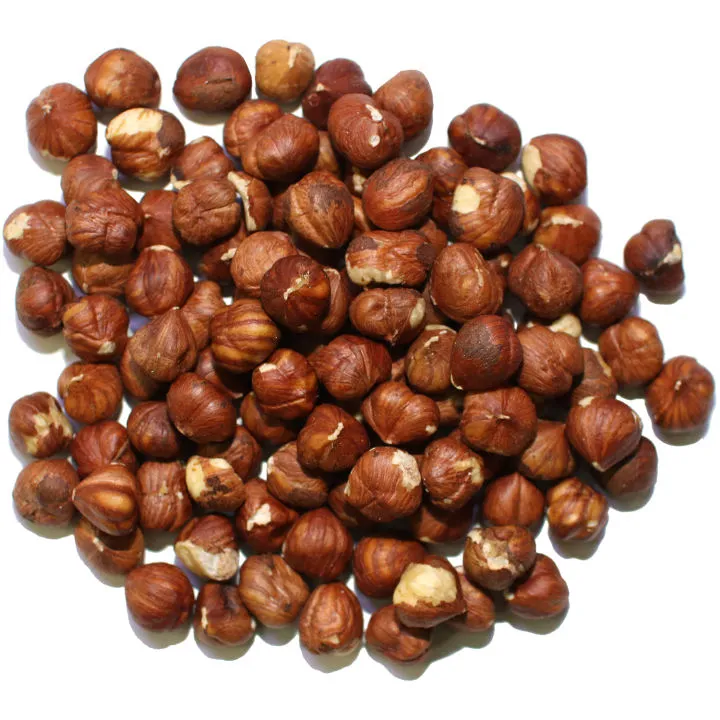
Hazelnuts are rich in nutrients and offer numerous health benefits. They are a good source of healthy fats, including monounsaturated fatty acids, which are known for their heart-protective properties. Hazelnuts also contain vitamins, minerals, dietary fiber, and antioxidants, contributing to their positive impact on cardiovascular health, weight management, and overall well-being.
7. Hazelnut Sustainability and Environmental Concerns
Sustainable hazelnut production is gaining significance as consumers and stakeholders become more aware of the environmental impact of agricultural practices. Sustainable farming techniques, such as soil conservation, water management, and responsible land use, are being adopted to ensure the long-term viability of hazelnut production and protect natural resources.
8. Hazelnut Market Opportunities and Challenges
The hazelnut industry presents several opportunities for businesses to tap into a growing market. Increased demand for hazelnut-based products, healthier snacking options, and the rise of vegan and plant-based diets provide avenues for innovation and product development. However, challenges such as price fluctuations, climate change, and market competition also need to be considered.
9. Hazelnut Trade and International Regulations
International trade plays a crucial role in the hazelnut industry. Exporters and importers need to comply with various regulations and quality standards imposed by different countries. Market access, tariffs, labeling requirements, and food safety standards are important factors that businesses need to navigate to ensure smooth trade operations.
10. Hazelnut Industry Outlook and Future Prospects

The hazelnut industry is expected to witness continued growth in the coming years, driven by factors such as increasing health consciousness, changing consumer preferences, and product diversification. The expansion of hazelnut cultivation in new regions and the development of innovative processing techniques are likely to contribute to the industry’s growth and expansion.
Conclusion:
The hazelnut industry offers lucrative opportunities for businesses involved in cultivation, processing, and trading. The increasing demand for hazelnut-based products, coupled with the numerous health benefits associated with hazelnuts, make it a promising sector within the global agricultural market. However, businesses need to navigate challenges such as sustainability concerns, international regulations, and market competition to fully capitalize on the potential of the hazelnut industry. By staying informed about market trends, investing in sustainable practices, and adapting to changing consumer preferences, businesses can position themselves for success in the hazelnut industry.
